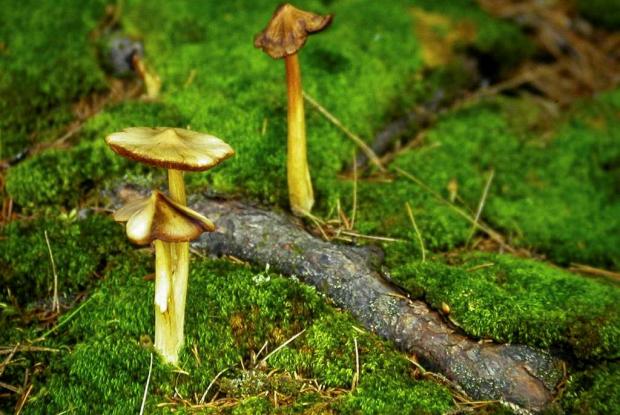|
“Can I get that without mushrooms?” I hated - was repulsed by mushrooms for 42 years. No picking around, no blending and no amount of “oh, but this is a special kind of mushroom.” It’s obnoxious how people will try to convince you otherwise when they find out you don’t like something. I’m not six. I’m pretty confident as a middle aged man that I know what I don’t like. But don’t tell me you don’t like coffee... From my point of view, convincing people they would like coffee if they had a really good cup - which of course I’m happy to roast, grind and brew for them personally - makes sense. I’m doing them a favor. They’ve been neglected by the coffee gods. Abused really.
But mushrooms? That’s different. They’re gross. At 42 years of age, I began eating raw mushrooms. I still can’t handle cooked mushrooms, mushroom burgers or those giant mushrooms they serve as the veggie option at banquets - so nasty. But, I can honestly say I like mushrooms. I’m not sure what happened. I think I matured a little. I have a friend who is renowned in the mushroom world. Not as a mushroom - he is a scientist. His name is Adam and several years ago, we had a long, enthusiastic conversation about the role of mushrooms in the ecosystem. It is a vital symbiotic role. They transfer nutrients, they digest, they communicate and they guide in ways that trees cannot. But they can’t photosynthesize. They cannot synthesize their own food from the sun’s energy because they lack chlorophyll. They must rely on intimate relationships with their surrounding neighbors. Symbiosis or Mycorrhiza - is a nutrient exchange between tree roots and the mushroom. Each one offers what the other cannot do for itself. Saprophytism is what mushrooms that live in lawns, rotting wood and poop do. Basically, they eat and digest their host and return nutrients to the soil. Finally, parasitism is when microscopic mushrooms live off their host, often helping unhealthy trees, plants and even insects complete the circle of life. They’re like tiny hospice doctors. My point is not that you should like mushrooms if you don’t already. (Coffee...maybe.) It’s that there is a truth illustrated in this eco-connection. A tree relies on a mushroom and a mushroom relies on a tree and they sacrifice none of their innate value by their lack of independence. Each one offers something and each one takes something. Without apology. Without shame. Without any question of equity. It ought to be that way with us. I am proud that we are thinking about equity. We are asking the question. But we are often asking it from an imagined position of superiority. The very asking of the question usually demonstrates an inequity. It’s like we are a tree, looking down at a little mushroom and asking, “how do we make the inconsequential little mushroom feel important?” We are beginning to recognize that all people are created equal regardless of size, race, gender, age, intelligence or any other difference. That’s a great step in the right direction. We are also realizing that when people feel like they belong and are significant in the human ecosystem, they are healthy. But that does not mean that our job is to help other people achieve a feeling. Our roles are symbiotic. The tree must stop imagining that it has a power to wield that is superior to the mushroom. Every person already does belong. Every person already is significant. This is an absolute. Our job is to behave according to this truth. If we don’t, there is little hope for the trees or the mushrooms. It is when we live according to the absolute truth that every person has a critical role to play in the human ecosystem, that the ecosystem works like it’s supposed to. The feeling of belonging and significance is the result of equity, not the cause. Nearly every social problem we endure comes from believing and acting like some people matter more than others. But every person must play a vital role. There are dire consequences when we don’t. When we do the impact is life giving. It is an atomic and eternal improvement in the human ecosystem.
0 Comments
Your comment will be posted after it is approved.
Leave a Reply. |
Curtis MillerI write in a geeky, sciency, hopefully poetic way about belonging, storytelling, community building, deconstruction and construction, Archives
June 2024
Categories
All
|
Proudly powered by Weebly


 RSS Feed
RSS Feed